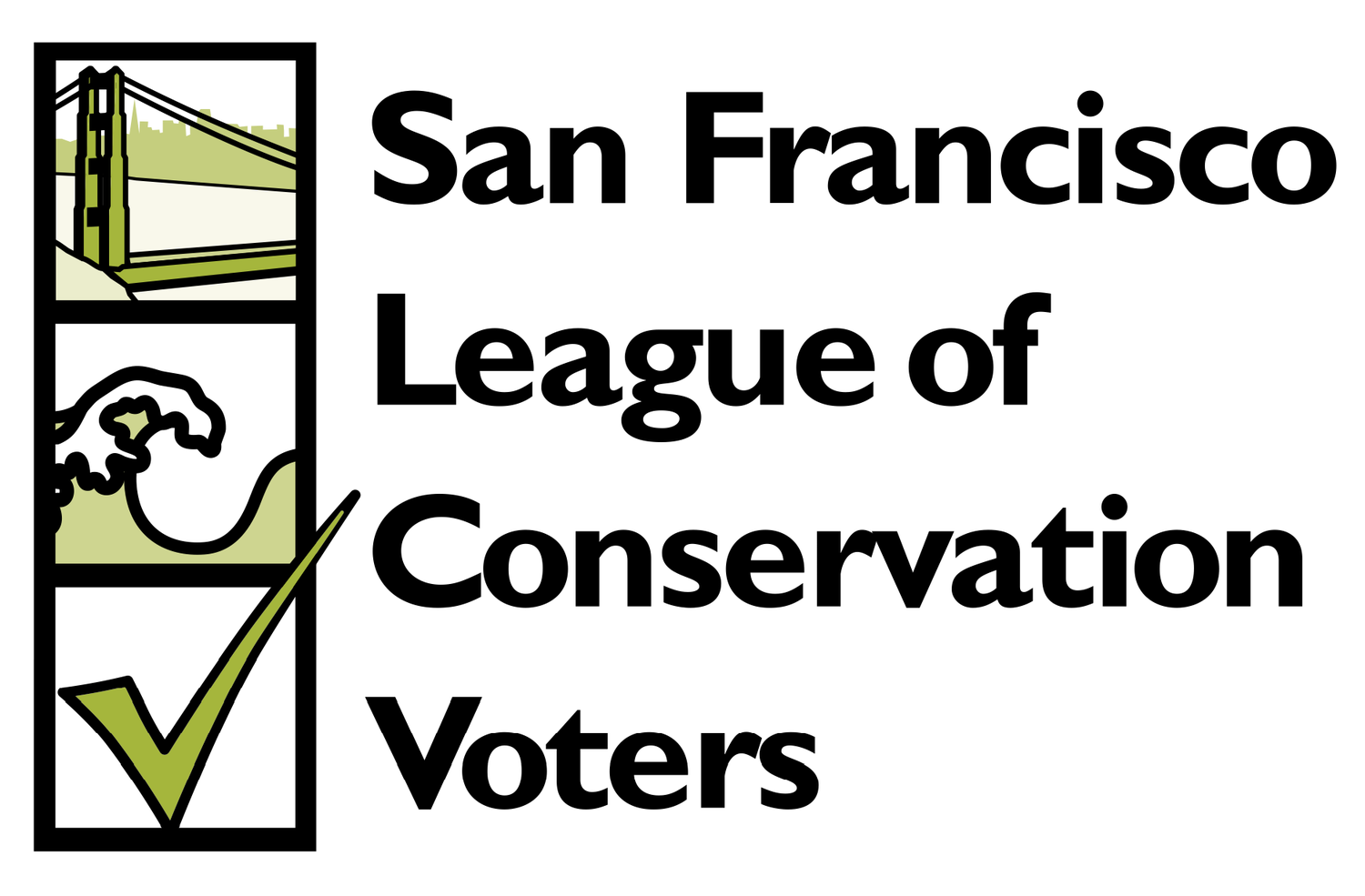Vote E for the Environment, and Against D for Dangerous Decisions
/San Francisco's oversight commissions are essential to ensuring that our city government is transparent, accountable, and responsive to the needs of its residents. In June of this year, a Civil Grand Jury was convened to review the effectiveness of these commissions and issued an 81-page report with their findings. Prop E was developed as a result. It will create a deliberate process to streamline city commissions with public input. Prop D, by contrast, will completely eliminate almost half of the commissions. Core bodies such as the Commission on the Environment will be eliminated unless the Board of Supervisors opts to allow them to continue. In no event may the Board of Supervisors allow more than a total of 65 commissions to continue to exist.
Background: The city currently has 115 commissions and advisory boards, with 1,200 seats appointed by various officials in the city but primarily by the Mayor and Board of Supervisors. The City Charter, our “city constitution,” mandates the creation of a total of 42 commissions (Grand Jury Report, p. 21) and 73 commissions were created by the Board of Supervisors – a total of 115 (Grand Jury Report, p. 7). How these commissions came to be is an important factor impacting how they are reformed.
What Prop E Does: Per the Civil Grand Jury findings, Prop E creates a Streamlining Task Force that will conduct a comprehensive review of the existing commissions and recommend changes to improve their efficiency and effectiveness. This task force will include a diverse range of stakeholders, including representatives from the City Administrator, Controller, and City Attorney's offices, as well as experts in open and accountable government.
A vote yes here would mean:
If the Task Force recommends changes to commissions established by the Board of Supervisors, the Task Force may introduce ordinances to make those changes.
Any ordinance the Task Force introduces would take effect 90 days after introduction unless the Board rejects it by supermajority vote of at least eight members.
If the Task Force recommends changes to commissions established by the voters, those changes may also require voter approval at a future election before the City may implement them.
If the Task Force recommends changes to commissions established by Charter amendment, the City Attorney would be required to prepare a Charter amendment implementing these recommendations for the Board to consider placing on the ballot for a future election.
This approach ensures that any changes made will be well-considered, data-driven, and focused on enhancing the administration of city government without sacrificing transparency or public participation.
Why Not Prop D: Prop D is a blunter instrument. Prop D seeks to limit the number of city commissions to 65 – a hard cap - effectively eliminating nearly half of the existing commissions. This measure would also strip many commissions of their decision-making authority, transferring power to department heads appointed by the Mayor. Additionally, the SFLCV found the reasoning and source of supporting materials to have a clear conflict of interest. Prop D was put on the ballot by TogetherSF, which commissioned a Report by the Rose Institute of State and Local Government. Though it is clear a large amount of effort went into this report, it was commissioned by an organization looking to create a ballot measure. This ballot measure would notably lead to the elimination of 24 commissions currently established by the Charter, including Environment, Human Rights, and Small Business Commissions. The Board of Supervisors could reestablish these commissions by ordinance, but they would be subject to the numeric cap on commissions and would be purely advisory. Other commissions established by Charter, including the Planning Commission, the Public Utilities Commission, the Municipal Transportation Agency Board, the Port Commission, the Recreation and Park Commission, and the Board of Appeals would continue to exist and would retain their regulatory authority.
The SFLCV focuses on environment- and good governance-related measures. Therefore, we did not consider the following aspects of Prop D in our deliberations:
Prop D would allow the Mayor to appoint, without Board review, at least two-thirds of the members of reauthorized, restructured or new commissions, and some retained commissions.
It would give the Board of Supervisors authority to appoint up to one-third of the members of those commissions.
It would give the Police Chief sole authority to adopt rules governing police officers’ conduct.
In summary, Prop E offers a balanced and inclusive path forward for reforming our commissions, while Prop D threatens to dismantle the very structures that ensure our city's government remains transparent and accountable. Vote E for the Environment, and Against D for Dangerous Decisions


